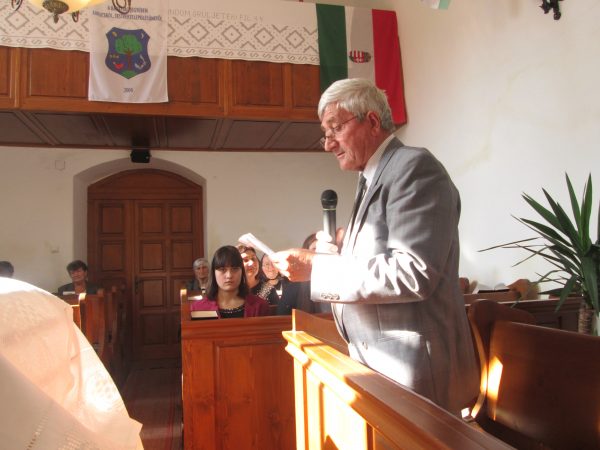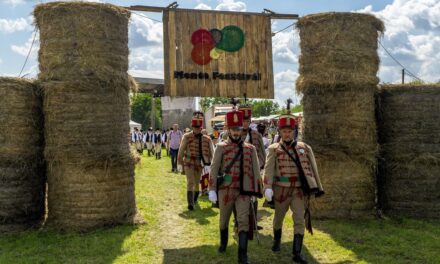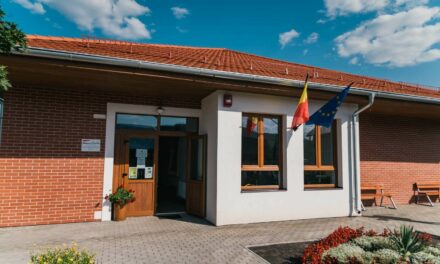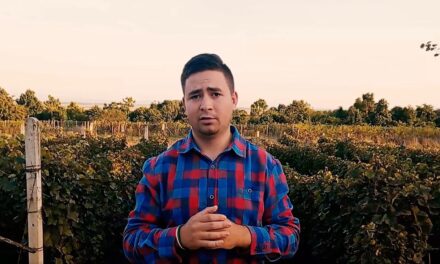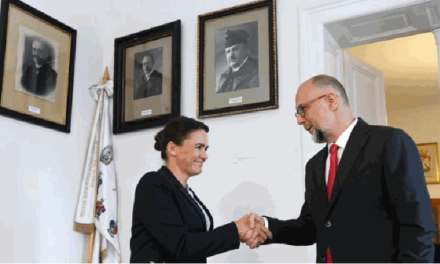We will do everything to ensure that the community living in Magyarkacuc (Romania, Bihar county) praises the Lord for a long time, says Imre Barabás, chief guardian of Magyarkacuc, who believes that it is important for a congregation to have a desire for life. The interview of the erdely.ma portal is abbreviated.
There is a lot to read about the events of the Magyarkakuc small church. News reports suggest that this handful of communities want to live and cling to their roots.
Living in a language community of another sea, it is a strict requirement for the ethnic minorities, in our case the Hungarians of Bihari, Partium, and Transylvania, to use our abilities and fight with all our might for our survival and future, for which we also ask for the selfless brotherly help of those who sympathize with us. I believe that we here at Magyarkakuc (120 people) must always be ready for this task in order to live a decent life and maintain order in our community.
The already mentioned reports and celebrations indicate that it is possible to develop and survive even in a minority, in a sea of the majority. What does it take?
Above all, clarity and will. It is necessary to notice in time how things are developing around us, what direction and purpose the changes are taking. What intention lies behind them. And steps for our own good must be taken immediately. We want it, because we must want it, that attention continues to be directed at us in competent places, institutions, forums, so that the course of our lives turns for the better, so that - if things go wrong online - the course of things returns to normal. Only in this way, with constant attention and making the necessary decisions in time, can our small community survive, grow, and become stronger in everything.
There is a lot of talk about the fact that the small Hungarian communities living in the majority sea have a stronger identity and instinct for survival. Does this also apply to the spread between Élesd and Rév?
The surrounding settlements, most of which were predominantly Hungarian a few hundred years ago, now not only have a highly mixed population, but, with one or two exceptions, have completely Romanized. Today, Magyarkacucs is a scattered settlement, a small Hungarian island, where there has been no school or kindergarten for quite some time, education has completely ceased. First the Hungarian, then the Romanian. However, two generations ago there was still an eight-grade school, then only a four-grade school. No matter how incredible it seems today, at that time the army of eight classes of children was taught and raised by one teacher. He instilled in them the love of justice at an early age, for honor, decency, and virtue. Today, with the help of some good souls, the pastor of the Reformed Church is trying to keep the local Hungarians united, which requires the unity, love, and regular church visits of the church members.
Since 1995, you have been the head guardian of the Kakuc church, and you are also the president of the local interest protection association. What is the strength of the Hungarians and the congregation here?
As a presbyter, I always carried the problems of our church close to my heart. I did everything to make it as a scattered church desirous of life. This is how we approached our well-thought-out and thoroughly planned tasks. I will mention only a few of the important ones: construction of a prayer hall, provision of central heating, complete renovation of the church tower, complete renovation of the church roof and church interior (replacement of windows, pews, central heating), replacement of the parish roof structure, insulation, complete renovation of interior spaces. I also ask myself how it was possible to achieve so much for a small church? To which I can only answer: because people did not lack the power of love and unity.
In the case of congregations with small numbers of people, the question of shrubbery comes up from time to time. In Transylvania, in Mezösé, this is part of everyday life. As a small church caretaker, what is your opinion on this?
This is the painful future. But I think you have to hold out until the last moment. As long as possible, you have to persevere while preserving your independence! I don't want to reach a state where the congregations merge, because there is no real church life there anymore.
They maintain a good relationship with their sister settlement, Kakucc in Pest county. In addition, several non-local residents contribute to the maintenance of the church. Why do people from near and far love Magyarkakucs?
In order to remain united, we absolutely needed a place where we gather on our national and church holidays - to strengthen our spirit, our faith and our Hungarianness - and hold elevated festive programs. That is why we erected a marble obelisk in the churchyard in memory of all those who sacrificed their lives for the country and freedom. It has become a sacred place where we gather on important occasions and strengthen ourselves in spirit and identity. Similarly, through the work of an initiated personality, we prepared the monograph of Magyarkakucs, the history of the secular and ecclesiastical life of the Árpád-era settlement. According to experts and readers, this volume was the most read and most successful publication of the village monographs. This also boosted the spiritual strengthening of the Hungarianness of the village. Our church and village community entered into a brotherly relationship with Kakucc in Pest County 19 years ago. For the pleasure of all of us. Because, if the population of the two settlements was not even geographically, but in spirit, thinking, feelings and will, they became closer to each other. The inhabitants of the two settlements are connected by a very close friendship. We are present at their village day every year, and they are very welcome guests of the Ancestors' meeting held annually in Magyarkakuc. Even with their sincere friendly help, we grow and become stronger.
In addition to the beautiful past and the active present, will there be a Hungarian future for this settlement located in the beautiful countryside?
We cannot see the distant future, nor can we judge its development. However, we know one thing: history is not a closed thing, but a process in which changes can and do occur from time to time. We Hungarians will do everything we can to ensure that the community living in Magyarkakucs continues to praise the Lord for a long time. Zoltán Jékely's poem "In the church of Marosszentimre" gives strength to our struggle: "(...) There are ten of us: this is the congregation, / the eleventh is the priest himself, / but we sing instead of hundreds, / that the dust and plaster fall into it".
The full article HERE .

